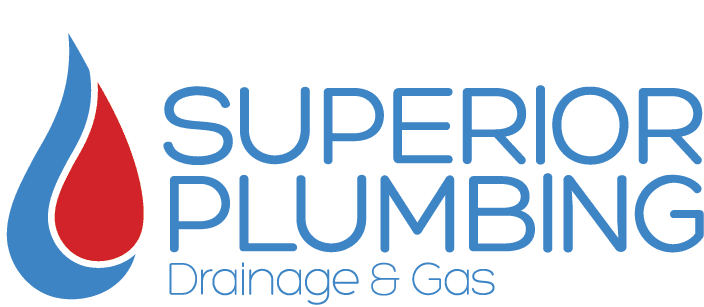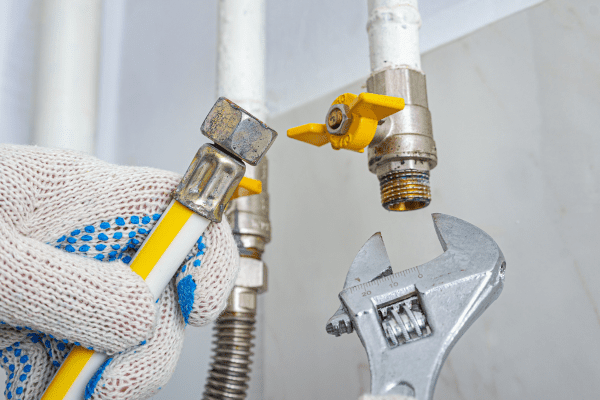Australians may have the stereotype of ‘throwing things on the barbie’, but in actuality, many people use gas to cook. Commercial properties in Perth are no different, and gas lines are an indispensable component of many, powering essential functions from heating to cooking. However, gas usage comes with inherent risks. Superior Plumbing & Gas knows how important safety measures are in protecting both property occupants and surrounding environments. It’s time for you to find out, too.
Checking Gas Lines Safeguards Your Property
Ensuring compliance with gas line safety regulations is not just a legal requirement but a moral obligation for businesses. As part of Western Australia, Perth adheres to regulations set forth by the Department of Mines, Industry Regulation and Safety (DMIRS) governing gas installations and safety. The Gas Standards Act 1972 and the Gas Standards (Gasfitting and Consumer Gas Installations) Regulations 1999 outline the framework for gas safety, prescribing requirements for installation, maintenance, and compliance checks.
Businesses operating in Perth must comply with these regulations to ensure the safety and integrity of their gas systems. So, what does this compliance entail? What are the best practices? And what are the consequences of non-compliance? Let’s explore the answers.
Compliance Considerations
Scheduled Inspections
Regular inspections conducted by licensed gas fitters are essential for identifying and addressing potential hazards in gas lines, fittings, and appliances. The frequency of inspections should be determined based on factors such as the type of property, gas usage intensity, and regulatory requirements.
Leak Detection
Employing advanced gas detection equipment during inspections enables the early detection of leaks, minimising the risk of gas-related incidents. Gas detectors should be calibrated regularly and utilised by trained professionals to ensure accurate results.
Appliance Maintenance
Gas appliances, particularly those in commercial kitchens, are used frequently and require regular maintenance to ensure optimal performance and safety. Routine servicing by qualified technicians helps prevent malfunctions, leaks, and other potential hazards.
Ventilation Assessment
Adequate ventilation is critical for dissipating gas fumes and maintaining air quality within commercial premises. Regular assessments of ventilation systems, including exhaust fans and ductwork, are essential to ensure compliance with safety standards and prevent the buildup of hazardous gases.
Record-Keeping
Maintaining detailed records of gas line inspections, repairs, and maintenance activities is essential for demonstrating compliance with regulatory requirements. Accurate documentation serves as a crucial reference for monitoring the integrity of gas systems and facilitating regulatory audits or inquiries.
Best Practices
Employ Professionals
Entrust gas line inspections and maintenance tasks to licensed gas fitters with expertise in commercial installations. Working with reputable professionals ensures adherence to regulatory standards and promotes the highest levels of safety.
Employee Training
Provide comprehensive training to employees on gas safety protocols, emergency procedures, and the proper operation of gas appliances. Heightened awareness among staff members enhances overall safety culture and enables prompt responses to potential gas-related hazards.
Prompt Repairs
Address any issues or deficiencies identified during inspections promptly and decisively. Timely repairs, replacements, or upgrades are essential for minimising risks and preventing the escalation of minor issues into serious safety hazards.
Stay Informed
Stay abreast of updates to gas safety regulations, industry best practices, and technological advancements in gas detection and monitoring. Proactively incorporate new insights and innovations into safety protocols to enhance the effectiveness of gas line safety checks.
Emergency Preparedness
Develop and regularly review emergency response protocols tailored to the specific requirements of the commercial property. Establish clear procedures for evacuations, gas leak containment, and communication with emergency services to ensure a swift and coordinated response in the event of a gas-related incident.
Repercussions of Non-compliance
Safety Hazards
The primary concern of neglecting gas line safety checks is the increased risk of safety hazards. Gas leaks, faulty appliances, or inadequate ventilation can lead to fires, explosions, or carbon monoxide poisoning. These incidents pose immediate dangers to occupants, employees, customers, and bystanders, potentially resulting in injuries, fatalities, or property damage.
Legal Liabilities
Non-compliance with gas safety regulations can expose businesses to legal liabilities. Regulatory authorities may impose fines, penalties, or sanctions for violations related to gas installations, maintenance, or safety protocols. In cases of gas-related accidents resulting from negligence, businesses may face civil lawsuits, litigation costs, and compensation claims from affected parties.
Financial Losses
Gas-related accidents and regulatory non-compliance can incur significant financial losses for businesses. Property damage, equipment failures, business interruptions, and legal expenses associated with resolving safety issues can disrupt operations and strain financial resources. Moreover, reputational damage stemming from safety incidents can deter customers, investors, and business partners, leading to revenue losses and diminished market competitiveness.
Environmental Impact
Gas leaks not only pose risks to human safety but also have environmental implications. Methane, the primary component of natural gas, is a potent greenhouse gas that contributes to climate change when released into the atmosphere. Unchecked gas leaks can exacerbate environmental pollution, degrade air quality, and harm ecosystems, resulting in long-term ecological damage and public health concerns.
Regulatory Sanctions
Regulatory authorities may impose sanctions, such as fines, license suspensions, or operational restrictions, on businesses found to be in violation of gas safety regulations. Repeat offenders or egregious violations may face more severe penalties, including legal injunctions, closure orders, or criminal prosecution for endangering public safety.
Loss of Trust and Reputation
Gas-related incidents and regulatory violations can erode the trust and reputation of businesses within the community. Negative publicity, media scrutiny, and public perception of negligence or irresponsibility can tarnish the brand image and credibility of businesses, resulting in loss of customer trust, loyalty, and goodwill.
Gas Line Safety with Superior Plumbing & Gas
It’s time to call for the professionals. Using professionals ensures expert, efficient gas safety checks, mitigating risks, ensuring legal compliance, and providing peace of mind for smooth business operations. Their expertise and knowledge guarantee thorough inspections and timely maintenance, reducing the likelihood of accidents and costly legal repercussions.
Ensure the safety and reliability of your commercial property with Superior Plumbing & Gas. Our licensed professionals bring expertise and state-of-the-art equipment to meticulously inspect and maintain your gas systems, ensuring compliance with all regulatory standards.
With a commitment to safety, efficiency, and customer satisfaction, we will help you maintain a safe environment for your employees and customers. So, get in touch today!


